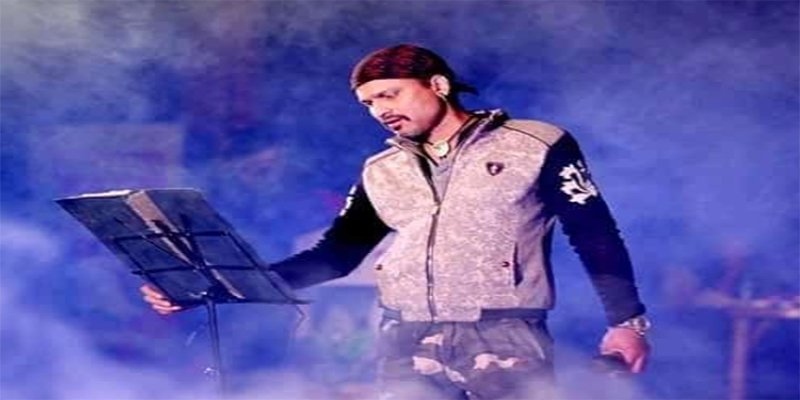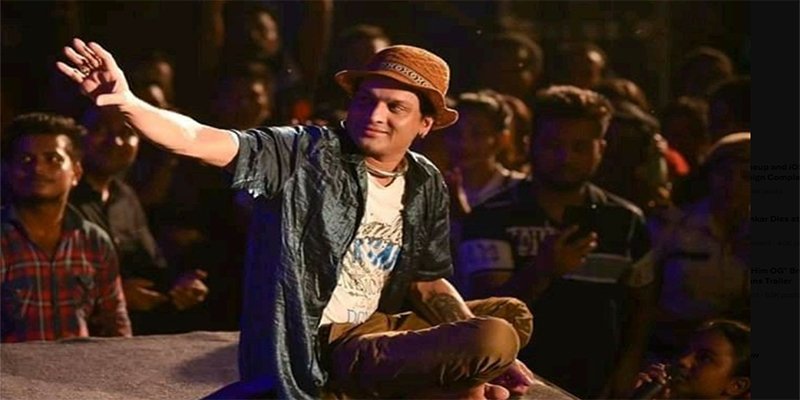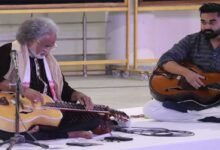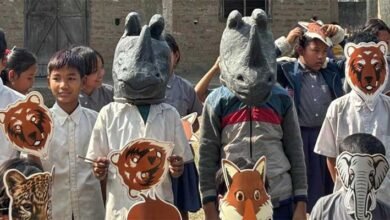Tragic End to a Melody: Assamese Icon Zubeen Garg dies in Singapore

In a devastating blow to the cultural heartbeat of Assam and the broader Northeast India, legendary singer-songwriter Zubeen Garg passed away at the age of 52 in Singapore today, following a fatal accident during a recreational water activity.
The news, which broke like a thunderclap across social media and news outlets, has left fans, fellow artists, and the entire region in profound mourning. Zubeen, revered as the “heartthrob of Assam” for his soul-stirring voice and versatile contributions to music, cinema, and philanthropy, was in the city-state to perform at the prestigious North East India Festival (NEIF) when tragedy struck.
As per media reports indicate that the mishap occurred around midday local time (between 12:30 PM and 1:00 PM Singapore time) off the coast of Singapore. Zubeen, known for his adventurous spirit and love for adrenaline-fueled pursuits, was reportedly engaged in a scuba diving expedition— though some unconfirmed sources mentioned a paragliding element gone awry—when he encountered sudden distress. He fell into the sea and lost consciousness, prompting an immediate rescue operation by local authorities.
Singapore police swiftly responded, pulling the unconscious singer from the waters and rushing him to a nearby hospital in critical condition. Medical teams placed him in the Intensive Care Unit (ICU), where he was intubated and monitored closely for signs of recovery. Despite the tireless efforts of doctors Zubeen did not regain consciousness.
He was pronounced dead shortly after arrival, succumbing to his injuries in what has been described by hospital sources as an “irreversible” state. Till preparing this report, the Singaporean authorities have yet to release an official postmortem report or detailed statement, but multiple credible outlets confirmed the singer’s passing based on insider medical updates.
The incident has cast a shadow over the North East India Festival, a three-day extravaganza from September 19-21 celebrating 60 years of India-Singapore diplomatic ties and the India-ASEAN Year of Tourism. Zubeen was slated to headline performances showcasing Northeast India’s vibrant folk and contemporary music, drawing crowds eager to witness his electrifying stage presence.

A Life in Rhythm:
From Jorhat Streets to Global Stages Born Zubeen Borthakur on November 18, 1972, in Jorhat, Assam, Garg’s journey from a small-town dreamer to a pan-Indian sensation is the stuff of folklore. Renaming himself Zubeen Garg to honor his musical aspirations, he burst onto the scene in the late 1990s with Assamese albums like *Assamese Rock* and *Xagoroloi Bohu Door*, blending rock, folk, and bhakti traditions into anthems that resonated deeply with his homeland’s youth.
His foray into Bollywood cemented his superstar status. The soulful “Ya Ali” from the 2006 thriller *Gangster*—a haunting Sufi-rock fusion—earned him widespread acclaim and a National Film Award for Best Male Playback Singer. Follow-ups like “Dil Tu Hi Bata” from *Krrish 3* (2013) further showcased his chameleon-like versatility across Hindi, Bengali, and Bhojpuri cinema.
Over his three-decade career, Garg reportedly recorded over 32,000 songs, a staggering feat he once boasted would land him a Guinness World Record. He composed, directed, and acted in Assamese films such as *Mission China* and *Kanchanjangha*, while his music direction for non-feature films like *Echoes of Silence* (2007) bagged him a Rajat Kamal Award. Garg was more than a performer; he was a cultural custodian.
His discography preserved Assam’s linguistic heritage amid globalization, with hits like “O Mur Apunar Desh” evoking regional pride. Philanthropically, he championed flood relief, wildlife conservation, and anti-drug campaigns, often performing free concerts for marginalized communities.
In 2024, the University of Science and Technology, Meghalaya, honored him with an honorary Doctor of Literature (D.Litt.) for his literary and musical prowess. Irreligious by self-description, Garg transcended caste and creed, once stating, “Music is my only religion.” Yet, his life wasn’t without shadows.
Zubeen endured personal tragedies, including the 2002 car accident death of his sister, singer-actress Jonkey Borthakur, which inspired albums *Akou Hiyamon* and *Xixhu*. Health scares, like a 2022 head injury from a studio fall and 2023 hospitalizations for electrolyte imbalances, tested his resilience—but he always bounced back with unyielding optimism.

Tributes Pour In:
A Wave of Grief Sweeps Assam News of Zubeen’s death spread like wildfire on social media, with #ZubeenGarg trending globally within hours. Fans in Guwahati and Jorhat gathered spontaneously outside his residence and recording studios, lighting candles and playing his hits in tearful vigils.
“Zubeen da was our voice, our joy, our fight,” posted one devotee on X, capturing the sentiment echoing across the Northeast. Prominent figures joined the chorus of sorrow.
Assam Chief Minister Himanta Biswa Sarma called it “an irreplaceable loss to our cultural soul,” announcing state honors for Garg’s funeral rites, expected to be held in Guwahati upon repatriation of his remains.
Bollywood colleagues, including those from *Gangster*, shared memories of his humility and genius. “Ya Ali will forever echo his spirit,” tweeted a film industry insider.
On X, posts from users like @Dhruv_Axom and @nibirdeka lamented the “shocking” end, with thousands reposting images of Garg’s infectious smile.
The NEIF organizers expressed devastation, postponing opening ceremonies in respect. A 20-foot statue of Garg, unveiled by him in 2022 at Digboi’s Nazirating Tamuli Tourism Festival, now stands as a poignant memorial to his legacy.

Legacy:
Melodies That Will Outlive the Man Zubeen Garg leaves behind his wife, fashion designer Garima Saikia, whom he married in 2002, along with a son and a daughter from previous relationships. His passing at the peak of his influence—mere months after teasing new projects—robs Assam of its highest-paid and most beloved artist. As tributes flood in, one thing is clear: Zubeen’s music was a bridge—between regions, generations, and hearts.
From the misty hills of Assam to Singapore’s shores, his voice will continue to soothe, inspire, and unite. In the words of a fan’s viral post: “You didn’t just sing; you made us feel alive.” Rest in melody, Zubeen da.









